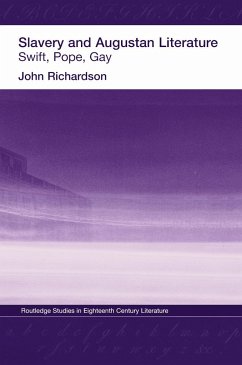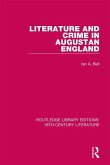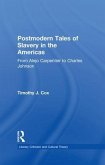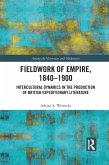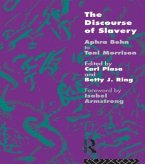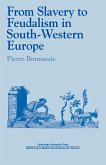Slavery and Augustan Literature investigates slavery in the work of Jonathan Swift, Alexander Pope and John Gay. These three writers were connected with a Tory ministry, which attempted to increase substantially the English share of the international slave trade. They all wrote in support of the treaty that was meant to effect that increase. The book begins with contemporary ideas about slavery, with the Tory ministry years and with texts written during those years. These texts tend to obscure the importance of the slave trade to Tory planning. In its second half, the book analyses the attitudes towards slavery in Pope's Horatian poems, An Essay on Man, Polly, A Modest Proposal and Gulliver's Travels. John Richardson shows how, despite differences, Swift, Pope and Gay adopt a mixed position of admiration for freedom alongside implicit support for slavery.
Bitte wählen Sie Ihr Anliegen aus.
Rechnungen
Retourenschein anfordern
Bestellstatus
Storno

